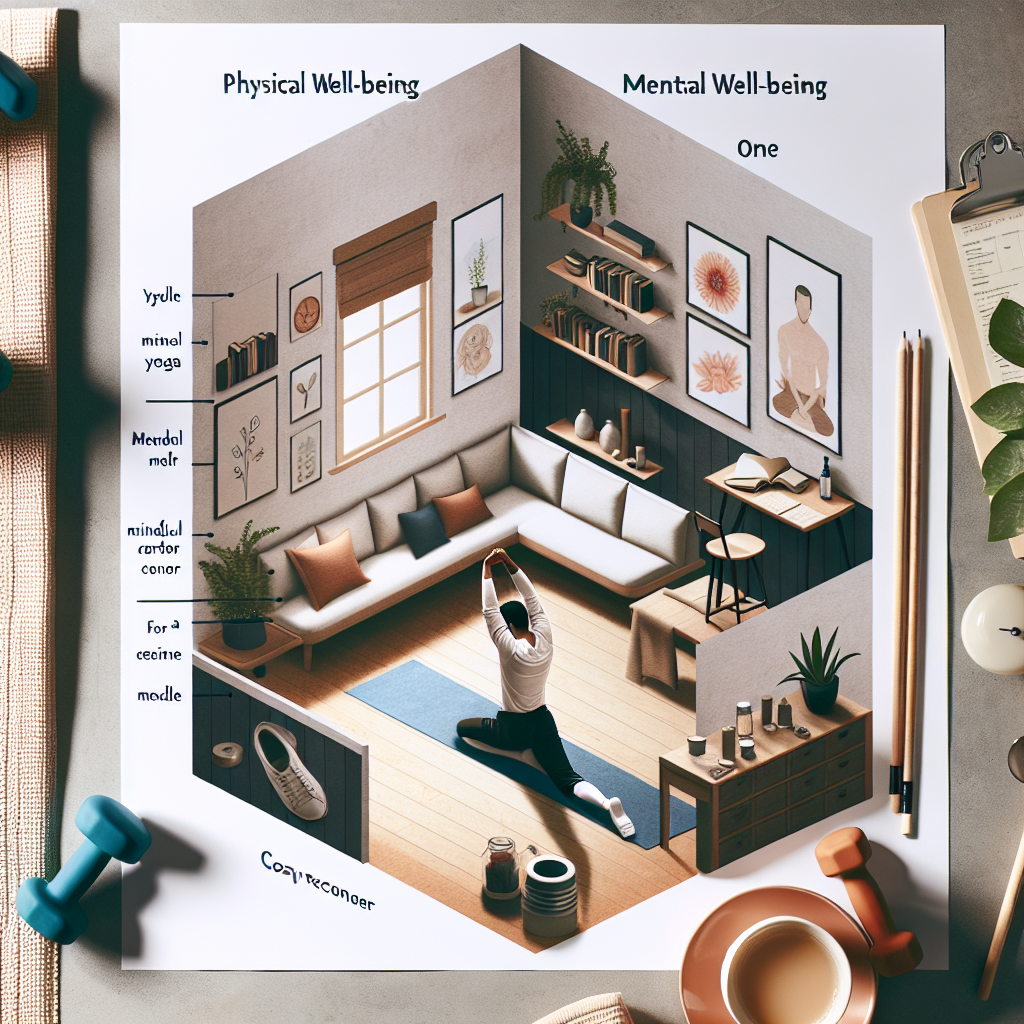Living a healthy lifestyle is essential for overall well-being, and self-care plays a pivotal role in achieving this. In this article, you will discover ten practical and effective self-care tips that can help you prioritize your physical and mental health. From practicing mindfulness to nourishing your body with nutritious food, these tips will empower you to take control of your wellness journey and make self-care a top priority in your everyday life. So, get ready to embark on a path of self-discovery and embrace a healthier, happier you.
Physical Self-Care
Exercise
Taking care of your physical well-being is crucial for overall health and happiness. Regular exercise not only helps you stay in shape, but it also improves your mood and reduces the risk of chronic diseases. Whether it’s going for a jog, attending a fitness class, or simply taking a walk, finding an exercise routine that you enjoy is essential to maintaining your physical health.
Eat a Balanced Diet
Eating a balanced diet is another important aspect of physical self-care. Fueling your body with nutritious foods provides the necessary energy and nutrients to function optimally. Incorporate a variety of fruits, vegetables, whole grains, lean proteins, and healthy fats into your meals. Avoid excessive consumption of processed foods, sugary snacks, and unhealthy fats.
Get Enough Sleep
Adequate sleep is often overlooked but is vital for your physical and mental well-being. Aim to get seven to eight hours of quality sleep each night. Establishing a consistent sleep schedule, creating a relaxing bedtime routine, and ensuring a comfortable sleep environment can greatly improve the quality of your sleep. Prioritize sleep as an essential part of your self-care routine.
Stay Hydrated
Hydration is key to maintaining optimal physical health. Drinking enough water throughout the day helps in various bodily functions such as regulating body temperature, aiding digestion, and promoting healthy skin. Make it a habit to carry a reusable water bottle with you and aim to drink at least eight glasses of water daily. Your body will thank you for it!
Practice Relaxation Techniques
Finding ways to relax and unwind is essential for physical self-care. High levels of stress can impact your overall health, so it’s important to incorporate relaxation techniques into your daily routine. Whether it’s practicing deep breathing, meditation, yoga, or indulging in a calming hobby, taking time for yourself to relax and recharge is crucial for maintaining physical well-being.
Mental and Emotional Self-Care
Practice Mindfulness
Mindfulness is the practice of being fully present in the moment, without judgment. It involves cultivating awareness of your thoughts, emotions, and surroundings. Taking a few minutes each day to practice mindfulness can help reduce stress, improve your mood, and enhance your overall sense of well-being. Try focusing on your breath, practicing gratitude, or engaging in mindful eating to incorporate mindfulness into your daily routine.
Engage in hobbies or activities you enjoy
Engaging in hobbies and activities that bring you joy is an important part of mental and emotional self-care. Whether it’s painting, playing an instrument, reading, or gardening, make time for activities that nourish your soul. These activities can help reduce stress, enhance creativity, and provide a sense of accomplishment and fulfillment.
Take Breaks and Rest
In our fast-paced world, it’s easy to forget the importance of taking breaks and allowing yourself to rest. Give yourself permission to take short breaks throughout the day to recharge your mind and body. Stepping away from work or responsibilities can help improve focus and productivity. Additionally, ensure you’re getting enough restful sleep to rejuvenate your mental and emotional well-being.
Set Boundaries
Setting boundaries is essential for protecting your mental and emotional well-being. It involves recognizing and communicating your limits in various aspects of life, such as work, relationships, and personal time. Learning to say no when necessary and prioritizing self-care shows respect for yourself and allows you to maintain balance in your life.
Seek Support
Seeking support from trusted friends, family, or professionals is an important part of mental and emotional self-care. It’s okay to ask for help when you need it. Surrounding yourself with a support system that you can rely on can help you navigate challenges, process emotions, and maintain good mental and emotional health.

Social Self-Care
Spend Time with Loved Ones
Spending quality time with loved ones is a crucial aspect of social self-care. Engaging in meaningful connections with family and close friends not only provides emotional support but also contributes to a sense of belonging and overall well-being. Make an effort to prioritize and nurture these relationships.
Connect with Friends
In addition to spending time with loved ones, making time to connect with friends is also important for social self-care. Surrounding yourself with positive, supportive individuals can enhance your social well-being and provide a sense of belonging. Whether it’s arranging a meetup, scheduling a phone call, or engaging in shared interests, invest in friendships that bring you joy and fulfillment.
Join a Club or Group
Joining a club or group that aligns with your interests or hobbies is a great way to meet like-minded individuals and expand your social network. Whether it’s a book club, a sports team, or a community organization, being part of a community can foster a sense of belonging and provide opportunities for connection and personal growth.
Volunteer
Volunteering is not only a way to give back to the community but also an excellent form of social self-care. Engaging in acts of service can bring a sense of purpose, fulfillment, and connection. Choose a cause or organization that resonates with you and donate your time and skills to make a positive impact in the lives of others.
Attend Social Events
Attending social events and gatherings is another way to nourish your social well-being. Whether it’s a birthday party, a community event, or a networking opportunity, participating in social gatherings allows you to connect with others, expand your social circle, and create memorable experiences. Embrace these opportunities to engage with others and build meaningful connections.
Spiritual Self-Care
Meditation or Prayer
Engaging in meditation or prayer practices can be a powerful form of spiritual self-care. Taking time to quiet the mind, reflect, and connect with something greater than yourself can bring a sense of peace, clarity, and spiritual nourishment. Incorporate meditation or prayer sessions into your daily routine to cultivate a deeper connection with your spirituality.
Explore Your Beliefs and Values
Exploring your beliefs and values is an essential part of spiritual self-care. Take time to reflect on what you believe in, what gives your life meaning, and what values guide your actions. Engaging in self-reflection and exploring different spiritual practices can help you align your actions with your beliefs and cultivate a sense of purpose and fulfillment.
Spend Time in Nature
Spending time in nature can provide a profound spiritual experience and enhance your overall well-being. Whether it’s taking a walk in the woods, sitting by the ocean, or gardening, immersing yourself in the beauty and tranquility of the natural world can evoke a sense of awe, gratitude, and interconnectedness.
Engage in Acts of Kindness
Engaging in acts of kindness is not only beneficial to others but also aligns with spiritual self-care. Showing compassion, empathy, and generosity towards others can bring a deep sense of fulfillment and connectedness. Look for opportunities to help others, practice random acts of kindness, and make a positive difference in the world around you.
Read Inspirational Books
Reading inspirational books is a wonderful way to nurture your spiritual well-being. Whether it’s religious texts, philosophical works, or personal development books, immersing yourself in inspirational literature can provide guidance, wisdom, and inspiration on your spiritual journey. Choose books that resonate with your beliefs and values and allow them to enrich your inner world.

Intellectual Self-Care
Read, Learn, and Expand Your Knowledge
Intellectual self-care involves engaging in activities that stimulate and expand your mind. Reading books, articles, or blogs, exploring new subjects, taking online courses, or listening to educational podcasts are excellent ways to enhance intellectual well-being. Cultivate a habit of lifelong learning and foster curiosity to ensure your intellectual growth.
Engage in Creative Thinking
Fostering creative thinking is an important aspect of intellectual self-care. Engaging in activities that require problem-solving, thinking outside the box, or seeing things from different perspectives can enhance your cognitive abilities and ignite your creativity. Embrace activities such as brainstorming, writing, drawing, or engaging in arts and crafts to foster creative thinking.
Challenge Your Mind
To keep your mind sharp and engaged, it’s essential to challenge yourself intellectually. Seek out puzzles, crosswords, Sudoku, or other brain-teasing activities that require critical thinking. Engaging in challenging mental activities can improve cognitive function, boost memory, and provide a sense of accomplishment.
Play Brain Games
In addition to challenging your mind, playing brain games can be an enjoyable way to enhance intellectual self-care. Whether it’s solving puzzles, playing chess, or engaging in word games, these activities stimulate various cognitive functions such as memory, attention, and problem-solving skills. Incorporate brain games into your routine to keep your mind active and engaged.
Attend Workshops or Seminars
Attending workshops or seminars related to your interests or professional development is an excellent way to engage in intellectual self-care. These events provide an opportunity to learn from experts, gain new knowledge, and expand your understanding of specific subjects. Look for workshops or seminars in areas that intrigue you and commit to lifelong learning.
Professional Self-Care
Set Realistic Goals
Setting realistic goals is crucial for professional self-care. It involves establishing achievable objectives that align with your interests, values, and aspirations. By setting realistic goals, you can maintain motivation, experience a sense of accomplishment, and avoid burnout. Break down larger goals into smaller, manageable steps to ensure progress and success.
Manage Work-Life Balance
Managing work-life balance is essential for maintaining overall well-being. It involves establishing boundaries between work and personal life, setting priorities, and ensuring time for rest, relaxation, and self-care. Strive for a healthy balance between your career and personal life to prevent burnout and promote a sense of fulfillment and satisfaction.
Take Breaks and Vacation Time
Taking breaks and vacation time is not just a luxury but a necessity for professional self-care. Allowing yourself time away from work to relax, recharge, and pursue activities outside of your professional responsibilities promotes creativity, productivity, and overall job satisfaction. Prioritize breaks and vacation time as essential components of maintaining your professional well-being.
Develop Skills and Continuously Learn
Professional self-care involves investing in your skill development and committing to continuous learning. Keeping up with industry trends, attending conferences or workshops, and seeking opportunities for professional growth can enhance your expertise, open new doors, and increase job satisfaction. Cultivate a growth mindset and embrace the process of learning and improvement.
Seek Professional Growth Opportunities
Seeking professional growth opportunities is an important part of professional self-care. This may include attending networking events, pursuing promotions or career advancements, or seeking mentorship or coaching. By actively seeking growth and development, you can enhance your professional skills, expand your network, and cultivate a fulfilling and successful career.

Financial Self-Care
Create and Stick to a Budget
Creating and sticking to a budget is a fundamental aspect of financial self-care. By setting financial goals and tracking your income and expenses, you can ensure financial stability and peace of mind. Budgeting helps you prioritize spending, save money, and make informed financial decisions.
Save for Future Expenses
Saving for future expenses is another important element of financial self-care. Whether it’s for emergencies, retirement, or a specific financial goal, setting aside money regularly can provide a sense of security and financial freedom. Create a savings plan and automate your savings to ensure you’re consistently building a financial cushion.
Pay Off Debts
Paying off debts is a crucial step towards financial well-being. High levels of debt can cause stress and hinder your ability to achieve financial goals. Develop a debt repayment plan, prioritize paying off high-interest debts first, and make consistent payments to reduce your debt burden and improve your financial health.
Invest Wisely
Investing wisely is an effective way to grow your wealth and achieve long-term financial goals. Whether it’s investing in stocks, real estate, or retirement accounts, seek professional advice and educate yourself on investment options that align with your financial objectives and risk tolerance. Smart and strategic investments can lead to financial security and a brighter future.
Seek Financial Advice
Seeking financial advice from professionals can provide valuable guidance and perspective on your financial journey. Consulting with a financial planner or advisor can help you develop a custom financial plan, optimize your investments, and make informed decisions regarding your finances. Take advantage of expert advice to ensure you’re on the right track towards financial well-being.
Environmental Self-Care
Declutter Your Living Spaces
Decluttering your living spaces is a powerful act of environmental self-care. Removing unnecessary clutter creates a sense of order and tranquility in your surroundings. Start with one area at a time, donate or recycle items you no longer need, and organize your belongings to create a calm and inviting environment.
Create a Calm and Organized Environment
Creating a calm and organized environment around you is essential for environmental self-care. Arrange your living and working spaces in a way that promotes relaxation, productivity, and positive energy. Incorporate elements such as natural lighting, plants, and soothing colors to create a harmonious and inviting atmosphere.
Surround Yourself with Positive Energy
Surrounding yourself with positive energy is a vital component of environmental self-care. Choose to spend time with people who uplift and inspire you. Create a supportive and nurturing social circle that promotes positivity, growth, and well-being. Additionally, engage in activities that bring you joy and ensure your surroundings reflect your values and aspirations.
Spend Time in Nature
Spending time in nature is an excellent way to practice environmental self-care. Nature has a unique ability to rejuvenate and heal, both physically and mentally. Take walks in the park, hike in the woods, or plan outdoor activities to immerse yourself in the beauty and serenity of the natural world. Connect with nature to foster a sense of awe and appreciation for our environment.
Reduce, Reuse, Recycle
Engaging in environmentally-friendly practices such as reducing, reusing, and recycling is an important part of environmental self-care. By minimizing waste, conserving resources, and adopting sustainable habits, you can contribute to the well-being of the planet. Make a conscious effort to reduce your carbon footprint and be mindful of the impact your actions have on the environment.

Creative Self-Care
Engage in Artistic Activities
Engaging in artistic activities is a wonderful form of creative self-care. Whether it’s painting, drawing, sculpting, or photography, allowing yourself to express your creativity can have a profound impact on your emotional well-being. Embrace your artistic side, try new techniques, and express yourself freely through the arts.
Write, Draw, or Paint
Writing, drawing, or painting is a therapeutic way to express yourself and tap into your creative potential. Whether it’s keeping a journal, sketching, or creating visual art, these activities provide an outlet for self-expression, self-reflection, and personal growth. Embrace the power of creativity and let your imagination soar.
Listen to or Create Music
Listening to music or creating your own melodies is a beautiful form of creative self-care. Music has the power to uplift, inspire, and evoke emotions. Create playlists that match your mood or engage in playing a musical instrument to immerse yourself in the world of sound and rhythm. Let music enhance your well-being and ignite your creativity.
Dance or Participate in Performing Arts
Engaging in dancing or participating in performing arts is an invigorating way to nurture your creative self-care. Whether it’s joining a dance class, participating in theater performances, or even just dancing in the privacy of your own home, these activities promote self-expression, boost confidence, and bring joy and vitality to your life.
Embrace Your Inner Child and Play
Embracing your inner child and allowing yourself to play is an essential part of creative self-care. Engage in activities that bring out your sense of wonder, curiosity, and imagination. Play with children, indulge in hobbies that make you feel alive, and let go of inhibitions. Grant yourself permission to be carefree and tap into the limitless realm of creativity.
Physical Health Maintenance
Regular Check-ups and Health Screenings
Taking care of your physical health involves staying on top of regular check-ups and health screenings. Schedule appointments with your healthcare provider for routine check-ups, vaccinations, and necessary screenings such as blood pressure, cholesterol, and cancer screenings. Early detection and prevention are key to maintaining good physical health.
Maintain a Healthy Weight
Maintaining a healthy weight is crucial for your physical well-being. Strive for a balanced diet, portion control, and regular exercise to achieve and maintain a healthy weight. Consult with a healthcare professional for personalized guidance and support in your weight management journey.
Avoid Smoking and Excessive Alcohol Consumption
Smoking and excessive alcohol consumption have detrimental effects on your physical health. Quit smoking and limit alcohol to moderate levels or avoid it altogether to reduce the risk of various health conditions such as heart disease, lung disease, and certain types of cancer. Seek support and resources to overcome these habits and prioritize your long-term health.
Practice Safe Sex
Practicing safe sex is an important aspect of physical health maintenance. Use barrier methods such as condoms and dental dams, get tested regularly for sexually transmitted infections, and have open and honest communication with your sexual partners about your sexual health. Protecting yourself and your partners is essential for a healthy and responsible sexual lifestyle.
Take Necessary Medications and Supplements
If you have any health conditions or require medications, it’s crucial to take them as prescribed by your healthcare provider. Additionally, consult with a healthcare professional about any necessary supplements to support your overall health. Staying compliant with prescribed medications and taking appropriate supplements can help manage your conditions and promote optimal physical well-being.
Incorporating self-care practices into your daily routine is essential for maintaining a balanced and healthy lifestyle. Remember to prioritize your well-being by investing time and energy into physical, mental, emotional, social, spiritual, intellectual, professional, financial, environmental, and creative self-care. By focusing on these different aspects, you can enhance your overall quality of life and cultivate a sense of happiness, fulfillment, and vitality. Take the first step today and start implementing these self-care tips for a healthier, happier you!



